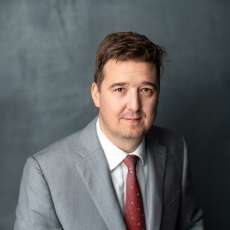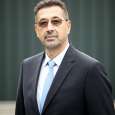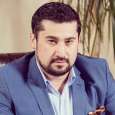CEZ Group has been present on the Romanian market since 2005, with the takeover of the electricity distribution company Electrica Oltenia SA. The Group is represented in Romania by nine companies, with capabilities ranging from distribution to supply, trade, energy services and renewable energy production.
CEZ Group has established a strong and diversified footprint in Romania. What initially drew your attention to this market and how has the company evolved since?
The period 2004 - 2005 saw several privatizations across Eastern Europe, and a time when the Czech National Energy company was looking for opportunities to grow internationally. We entered Romania at the same time with Bulgaria, by acquiring a local distribution company, and in the first years we focused on a transformation process. We were in fact the first company in Romania to meet the requirements of unbundling, and played an active role in the process, by leveraging our experience in the Czech Republic and providing know how to public authorities here.
In 2008 we acquired a wind farm project in Fantanele, Cogealac and again we had the amazing opportunity to be among the first ones - when we started the project the installed wind capacity in Romania was 2-3 MWh, and the project we acquired amounted to 600 MW. Even today, it is the biggest onshore wind park in Europe. Later in 2010 we took over and refurbished a hydro power system in Resita, a collection of engineering masterpieces that includes 4 hydro power plants and dams and 70 km of channels north of Resita. Most recently we have established CEZ ESCO which will specialize in energy services, and together with the team in Czech Republic we are looking for opportunities to further investments in Romania in this sector.
From a distribution perspective you cover the entire region of Oltenia. How would you assess the current state of the infrastructure and what can we expect in terms of investments in the next period?
In the first years we mainly invested in the network, for instance we focused on making transformation stations more reliable. That is because in 2005 it was still rather common to have power outages even several hours a day,. But this is no longer the case, the network quality has seen significant improvements and we are in a very stable position now.
At this stage we are focusing more on digital transformation, including data collection, smart metering, mobile workforce management and generally a direction of being more and more effective when it comes to using both our equipment and our people. We hold a lot of the knowledge still in a paper format and this makes it difficult to retrieve and turn it into something meaningful. It is also an investment for the future - as prosumers become more common, the energy flows are going to become more complex, because often times they will produce more than they consume. It will help us greatly to have online information about this, know the precise load of every part of the network and understand the patterns that come into play.
You joined the Romanian energy market just as the liberalization process started to unfold. How have you experienced this transition?
Liberalization is no doubt one of the biggest transformations that the energy industry has been through. Historically speaking, every supplier had a dedicated region and customers were captive to the respective provider. So liberalization was a great opportunity for end users, and also a big challenge for companies to transform into entities that proactively work to attract customers.
We started out in Romania holding approximately 10% of the market and we have successfully managed to maintain the share until present days, despite new competition. The biggest challenge we faced was changing the mentality inside our own company: we went through a process of mixing the teams, for instance we brought in people from telecommunications to give a flavor of what the change entails, we had to invest a lot in new IT systems and generally to develop a mentality that is more customer oriented.
The company has maintained a strong position in the renewable energy sector, despite the many legislative turbulences. What is your outlook for the sector presently?
The original investments were based on public subsidies, and the turbulence the ensued in Romania is similar to what happened in many European countries at the time, whether we are talking about Poland, the Czech Republic or Spain. It is important to look at these events from a broader perspective. Now that the price of technology has gone down so much, it is becoming possible for investments to be feasible just based on the sale of electricity. This is great news because it attenuates the risks associated with changes in legislation.
We are noticing at present many companies coming back to their plans and looking into options to develop previously frozen projects. Going forward it will depend very much on the market price of electricity and how stable it will be. In the last two years the prices have steadily increased, and if this continues it will give investors strong reason to move ahead. We are looking ourselves for opportunities to diversify our activities by using our knowledge and experience over the market and over operating the largest terrestrial wind farm to provide consultancy to other operators in Romania and abroad, by renting equipment and initiating R&D projects especially in energy storage..
What is your assessment regarding the ease of doing business in Romania based on your experience here?
Our experience has been a good one, compared to other countries I have worked in like Bulgaria or Turkey, Romania is no doubt more developed and predictable. When it comes to people, I believe they are very well educated, many have worked in international environments and can easily communicate in English. Especially if we consider the current circumstances in countries like Hungary or Poland, it is fair to say that Romania is well equipped to become one of the more stable countries in Central and Eastern Europe.





